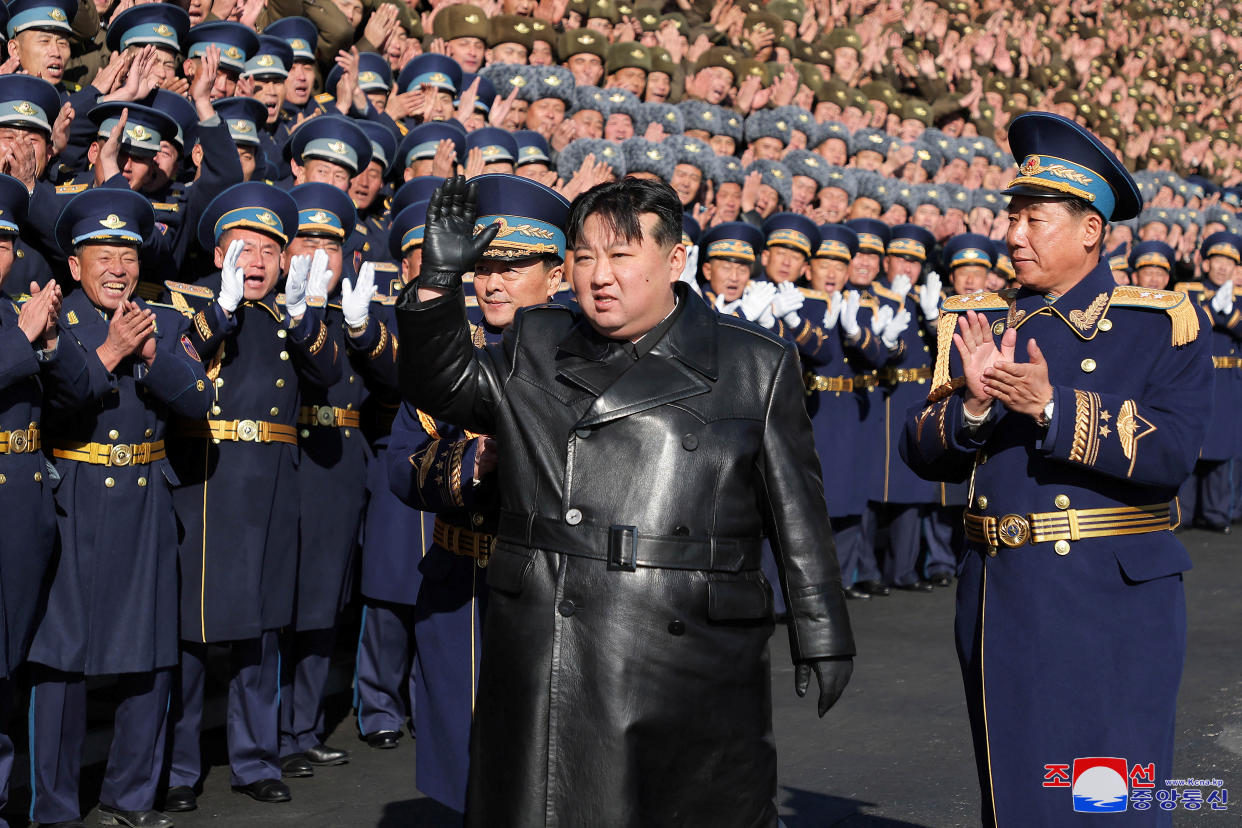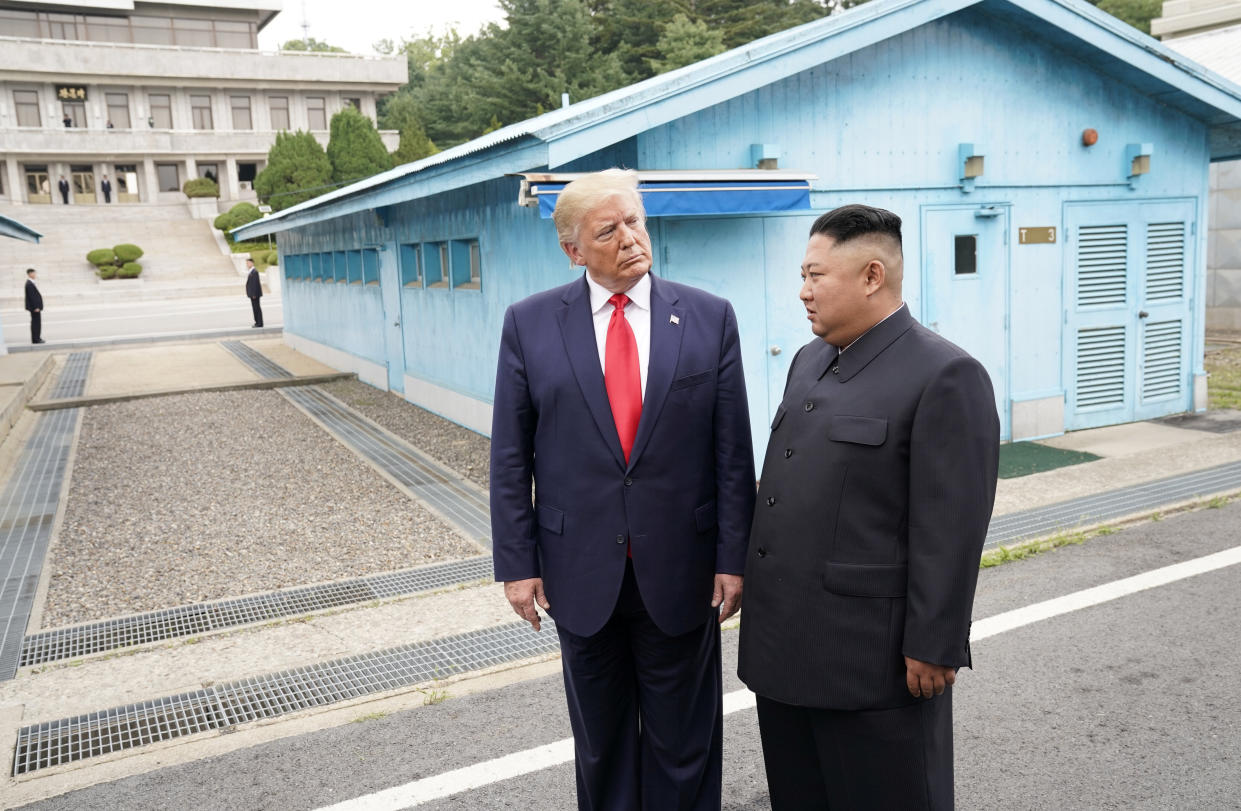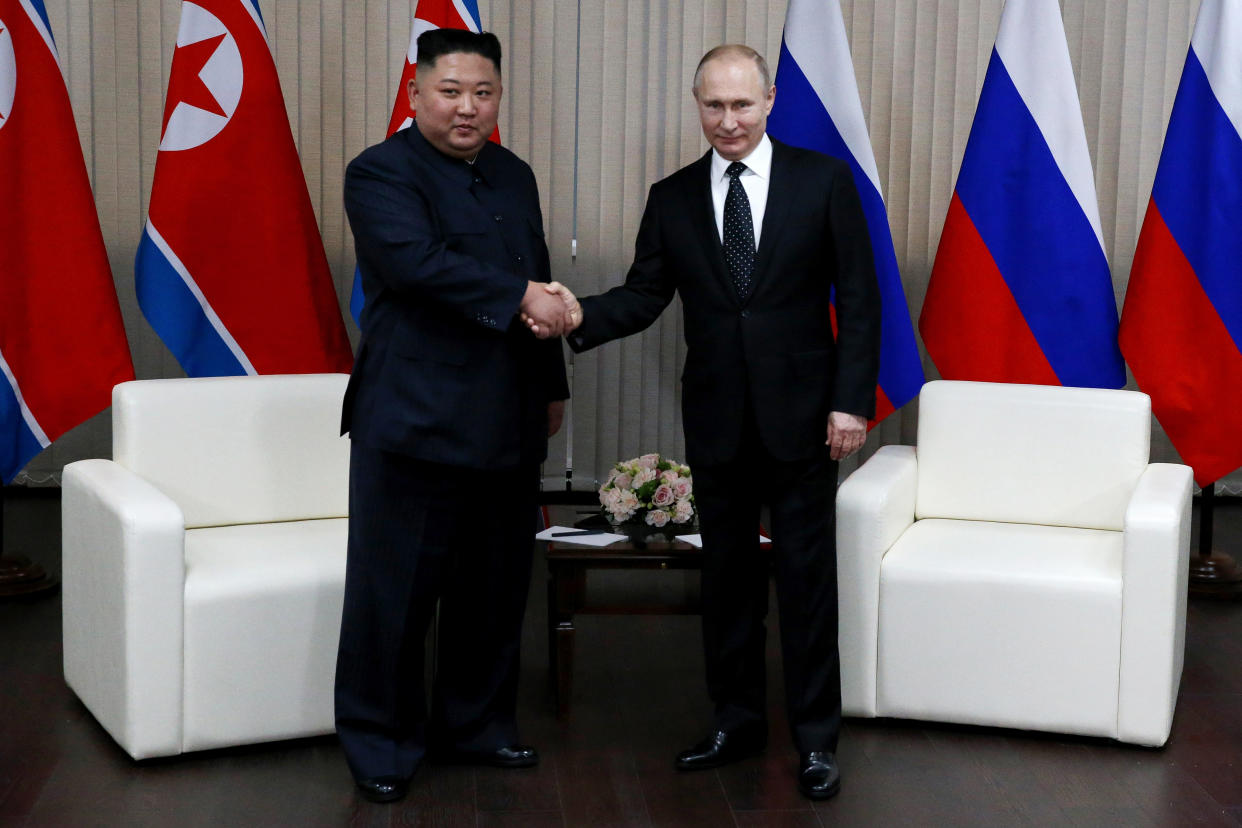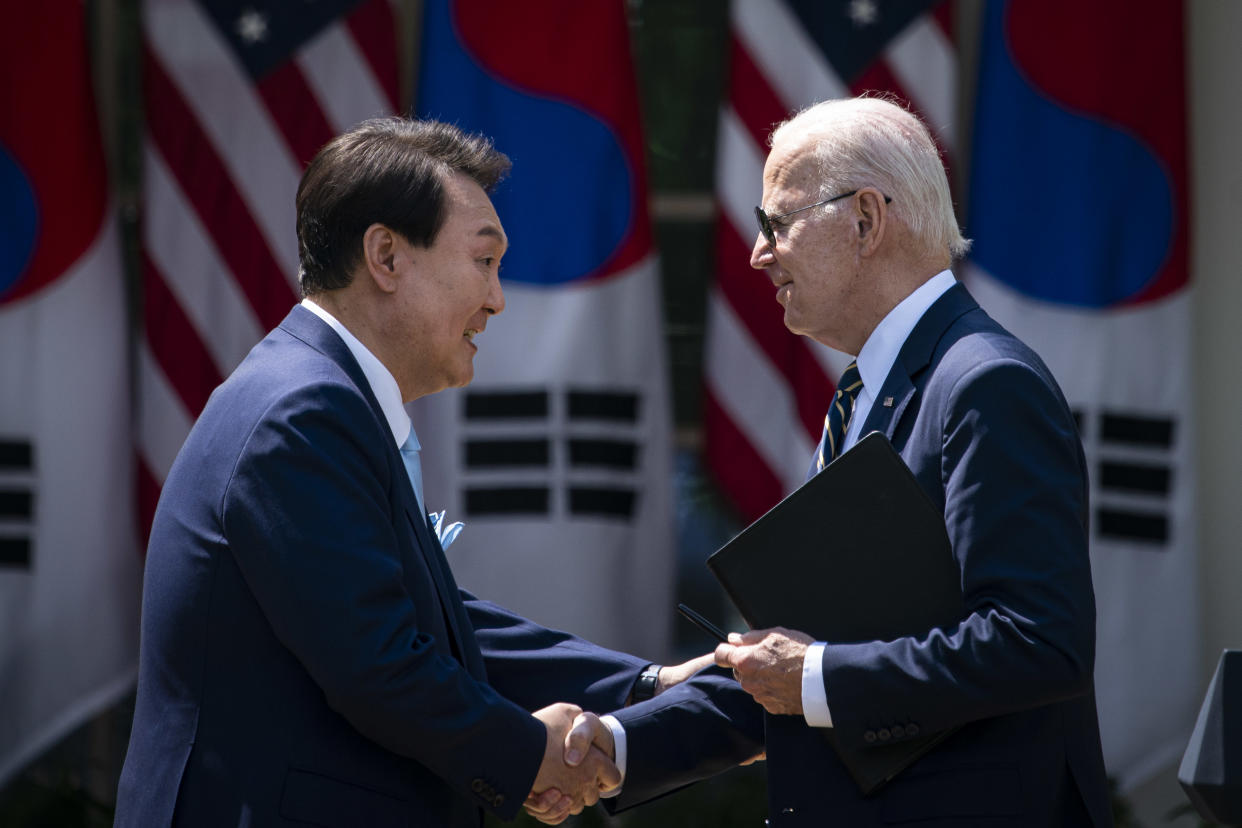North Korea is readying military and claims it saw U.S. military bases from spy satellite. How did we get to this point?

The sister of North Korean leader Kim Jong Un rejected talks with the U.S. at a United Nations Security Council meeting on Thursday following weeks of deteriorating relations. In the last two weeks, Pyongyang launched a spy satellite violating resolutions set by the U.N. and withdrew from the 2018 military pact with South Korea that aimed to ease tensions in the Korean peninsula.
Kim's sister Kim Yo Jong, who is a senior official of Pyongyang’s publicity and information department, criticized the U.S. as having “extreme double standards” for suggesting to reopen talks while increasing military activities in the region. North Korea “will continue to make efforts to develop everything belonging to its sovereign rights and continue to exercise the sovereign rights, enjoyed by all the member states of the U.N., in a dignified manner without being restricted in the future, too,” she said. At Thursday’s meeting, U.S. ambassador to the U.N. Linda Thomas-Greenfield condemned the satellite launch, labeling it “reckless, unlawful.”
Kim Yo Jong claimed that Washington was “double-faced" and that it was U.S. “high-handed and arbitrary practices” that thwarted peace in the region — not the space program.
On Friday, Kim Jong Un called on the military to prepare for any “provocation” and announced a deployment of more soldiers and other weapons to its border with South Korea.

The latest fallout
Last week, North Korea claimed it successfully launched a military reconnaissance satellite despite repeated warnings that such a launch would violate U.N. Security Council resolutions. Officials in South Korea cautioned Pyongyang that it would suspend the Panmunjom Declaration, the peace agreement signed in 2018. Just before the launch, the U.K. government announced a defense agreement with South Korea that would enforce sanctions on North Korea.
Just hours after the satellite launch, South Korean President Yoon Suk Yeol suspended part of the 2018 agreement that enforced a no-fly zone along the border. Prime Minister Han Duck-soo told reporters that the move was “necessary” for the security of the country.
The next day, North Korea retaliated by abandoning the agreement with the Defense Ministry, stating that all military measures would be “restored immediately.” On Monday, South Korea’s military said it detected soldiers along the border where North Korea had previously held guard posts before the 2018 accord.

The next day, North Korean state media claimed the spy satellite had taken photos of the White House, the Pentagon and naval stations in Guam and Hawaii. The images have not been made public, and it’s yet to be confirmed whether North Korea’s satellite is operational and was used to see U.S. military bases.
Recommended reading
Yahoo News: Kim Yo Jong: The most powerful woman in North Korea
Reuters:North Korea says it will not negotiate sovereignty with 'double-faced' US
The Hill: North Korea says spy satellite photographed White House, Pentagon
How did we get here?
The military pact in 2018 was a momentous time for the Korean peninsula, as a new era of peace was ushered in and the official end to the Cold War friction that had been felt for decades. However, less than a year later, all signs of progress faded following the collapse of diplomatic talks between Kim Jong Un and former President Donald Trump in Vietnam.

“After the failure of the Hanoi Summit between Trump and Kim in 2019, North Korea decided that it was not going to negotiate with the U.S. and South Korea, and then the pandemic happened and North Korea closed its borders,” Ramon Pacheco Pardo, a professor of international relations at King's College London, told Yahoo News. “So Kim doubled down on this decision of not engaging in dialogue with other countries and we have seen an escalation since then.”
Two years after Kim’s first meeting with Trump in Singapore, North Korea’s foreign minister vowed that the country would never provide another U.S. president with a “package to be used for achievements without receiving any returns.” Kim moved away from the West and visited Russia for the first time to discuss North Korea’s “nuclear problem” and has since displayed the might of its military as a nuclear state.
“North Korea has played the biggest role in having engineered the current tense situation,” Sung-Yoon Lee, a fellow at the Woodrow Wilson International Center for Scholars, told Yahoo News. “There is enough blame to go around to other parties but it's North Korea that's been the driver. I've been studying North Korea for 25 years or so. And I see them as not only very clever and strategic but also more proactive than the bigger countries surrounding them.”

What has Pyongyang said about recent escalations?
According to North Korea, the recent satellite launch is the country executing its “sovereign right” to “bolster up its defense capabilities” in the name of national security. However, due to U.N. sanctions, North Korea has been banned from using the technology required to launch a satellite.
“There are 10 major security council resolutions that explicitly ban North Korea from testing, acquiring developing ballistic missiles,” Lee said. “And launching a satellite requires continental ballistic missile technology.”
Pyongyang blamed the U.S. and its allies for this escalation after “pushing ahead” with its own “monitoring system” that would spy on North Korea and neighboring countries. South Korea launched its first satellite on Friday after an initial delay — one of five satellites deployed from California with the help of SpaceX.

“South Korea is not constrained from launching a satellite into orbit in space with the help of the U.S. or on its own,” Lee explained. “Nor are most nations of the world but North Korea has been an outlier. The launch is a brazen violation of major resolutions that were all unanimously endorsed by Russia under Putin and China under Xi Jinping.”
What about security on the Korean peninsula?
“I guess there will be more rhetoric and actions — even small-scale activities,” Lee said. “They'll certainly be nonlethal provocations like sending multiple drones into South Korea, of filming the presidential office compound. … These are not provocations that justify war, but they still create anxiety in South Korea. And in some sense, it's effective psychological manipulation. They are to be feared, they are to be condoned for fear of escalation, and then ultimately rewarded if they return to talks.”


